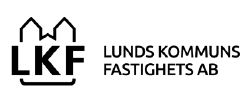Our Members in Sweden









Public housing in Sweden
What is public housing in Sweden?
In Sweden, the term ‘social housing’ is not used. The corresponding sector is called ‘allmännyttig’. This literally means ‘public utility’ or ‘for the benefit of everybody’. In an international context, the concept ‘public housing’ is appropriate. This sector consists of rental dwellings owned by municipal housing companies that are organised as joint-stock companies (limited companies). In most cases, the local authorities hold all the shares. These housing companies have a general interest objective to promote the provision of housing in their municipality, but they operate on business-like principles. (Credit: The Housing Europe Review)
Who provides public housing?
Municipal housing companies must work to promote public benefit. In addition, they must have a general interest objective by promoting the supply of housing in the municipality. This means not only housing for the most vulnerable but for all kinds of people. (Credit: The Housing Europe Review)
How is it financed?
There are no general housing subsidies. Investments in public housing must be financed by the income coming from rents. Public housing companies have no special benefits or advantages compared to the private rental sector. (Credit: The Housing Europe Review)
Who can access public housing?
To avoid stigmatisation of public housing estates or residential areas, the sector is open to anybody. There are no income limits or other similar limits. The purpose is to provide housing for all, also for the less advantaged. In practice, in comparison to other sectors and tenure forms, the residents in public housing are on average receiving a lower income, benefiting from more social benefits, and showing higher unemployment rates. They are also to a greater extent single persons or single parents and more often immigrants. (Credit: The Housing Europe Review)
Discover our members in other countries
Eurhonet has members in different European countries. Have a look at the public and social housing providers that make up our network:





